why do people ask me whats wrong or i look sad or to smiel
Why our facial expressions don't reflect our feelings
(Image credit:
Getty Images
)
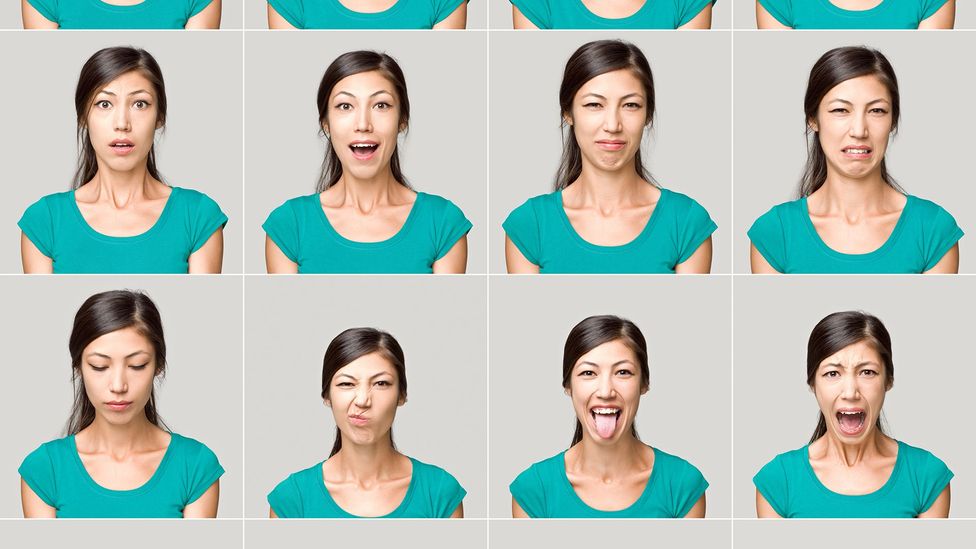
For centuries, nosotros've believed that facial expressions mirror our innermost emotions. But recent enquiry has establish that may be far from the truth.
W
While conducting inquiry on emotions and facial expressions in Papua New Republic of guinea in 2015, psychologist Carlos Crivelli discovered something startling.
He showed Trobriand Islanders photographs of the standard Western face up of fearfulness – broad-eyed, mouth agape – and asked them to identify what they saw. The Trobrianders didn't see a frightened face. Instead, they saw an indication of threat and aggression.

When shown photos of the standard Western face of fearfulness, Trobriand Islanders didn't run into a frightened person – they saw an aggressive i (Credit: Alamy)
The face acts "like a route sign to impact the traffic that's going past it," says Alan Fridlund, a psychology professor at University of California Santa Barbara who co-authored a recent study with De Montfort University'south Crivelli arguing for a more commonsensical view of facial expressions. "Our faces are ways we direct the trajectory of a social interaction."
That's non to say that we actively endeavour to manipulate others with our facial expressions (though every once in a while, we might). Our smiles and frowns may well exist instinctive.
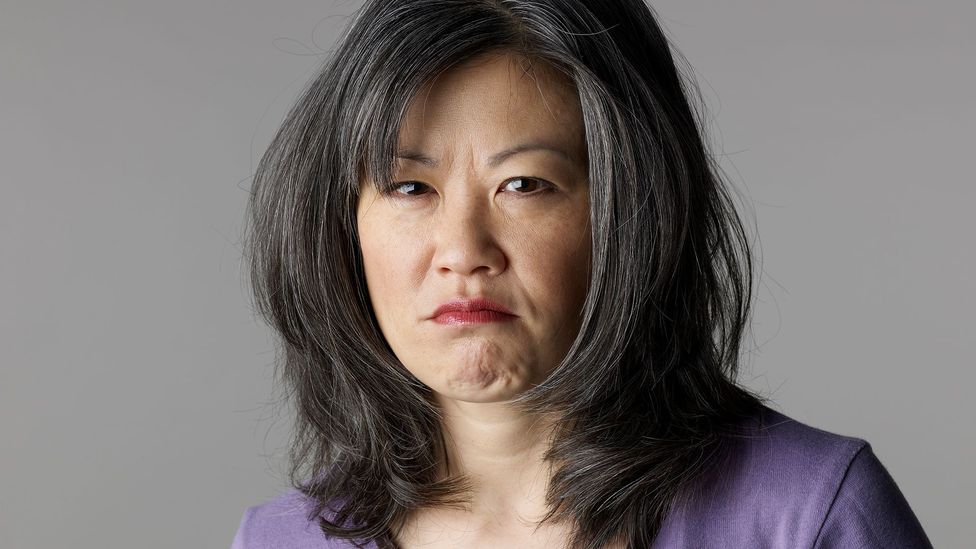
Our smiles and frowns may be instinctive, only they bespeak what nosotros want to happen next (Credit: Getty Images)
But our expressions are less a mirror of what's going on inside than a indicate we're sending nearly what we want to happen next. Your all-time 'disgusted' face, for case, might show that yous're not happy with the way the chat is going – and that you want information technology to take a different tack.
"It's the just reason that makes sense for facial expression to have evolved," says Bridget Waller, an evolutionary psychology professor at the University of Portsmouth. Faces, she says, are always "giving some sort of important and useful information both to the sender… and to the receiver."
While it may seem sensible, this theory has been a long time coming.
The idea that emotions are key, instinctive and expressed in our faces is securely ingrained in Western culture. Ancient Greeks placed the 'passions' in opposition to reason; in the 17th Century, philosopher René Descartes laid out half dozen basic passions which could interfere with rational thought. Artist Charles Le Brun then continued them to the confront, laying out "the anatomically correct and appropriately nuanced facial configuration for each Cartesian passion", write Crivelli and Fridlund.
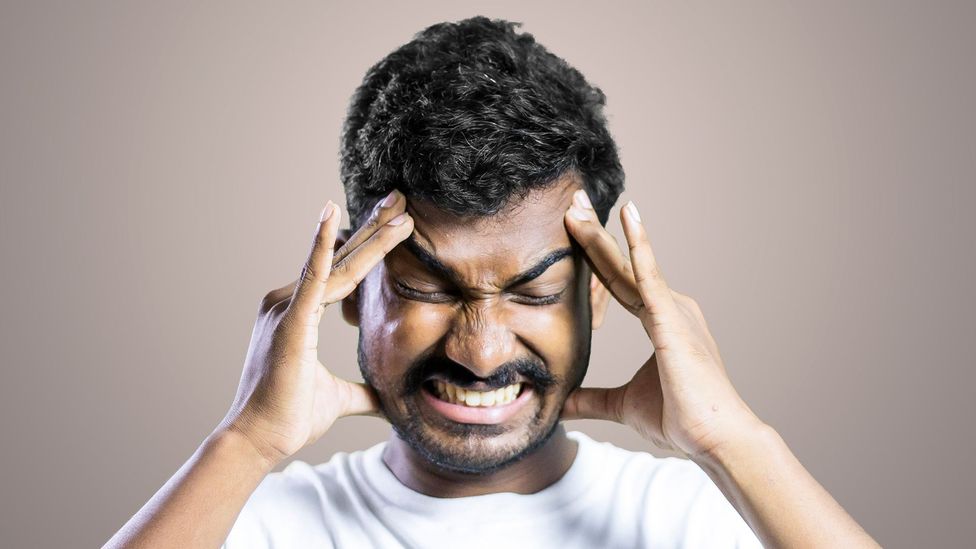
The thought that our faces act as a mirror of our emotions is securely ingrained in Western culture (Credit: Getty Images)
In the 1960s and '70s, scientific research also began to back up the idea that a few basic emotions could be universally understood through facial expressions.
In different countries around the world, researcher Paul Ekman asked subjects to friction match photos of facial expressions with emotions or emotional scenarios. His studies seemed to indicate that some expressions, and their corresponding feelings, were recognised past people of all cultures. (These "basic emotions" were happiness, surprise, cloy, fear, sadness, and acrimony.) Today, the legacy of Ekman'southward theories is everywhere: from the "Feelings" posters you see in preschools with their cartoons of smiles and frowns to a Us regime programme designed to identify potential terrorists.

Paul Ekman'south studies indicated that emotions like disgust were recognised by people of all cultures, but that may not exist authentic (Credit: Getty Images)
But this viewpoint has always had detractors. Margaret Mead, who believed that our expressions were learned behaviours, was amidst them. So was Fridlund, who early in his
career collaborated on 2 manufactures with Ekman earlier becoming disillusioned with Ekman'south ideas.
Face-off
New enquiry is challenging two of the primary pillars of bones emotion theory. First is the idea that some emotions are universally shared and recognised. Second is the belief that facial expressions are reliable reflectors of those emotions. "They are two different points which accept actually been confounded by scholars," says Maria Gendron, a psychology researcher at Northeastern University before long joining the Yale University faculty.
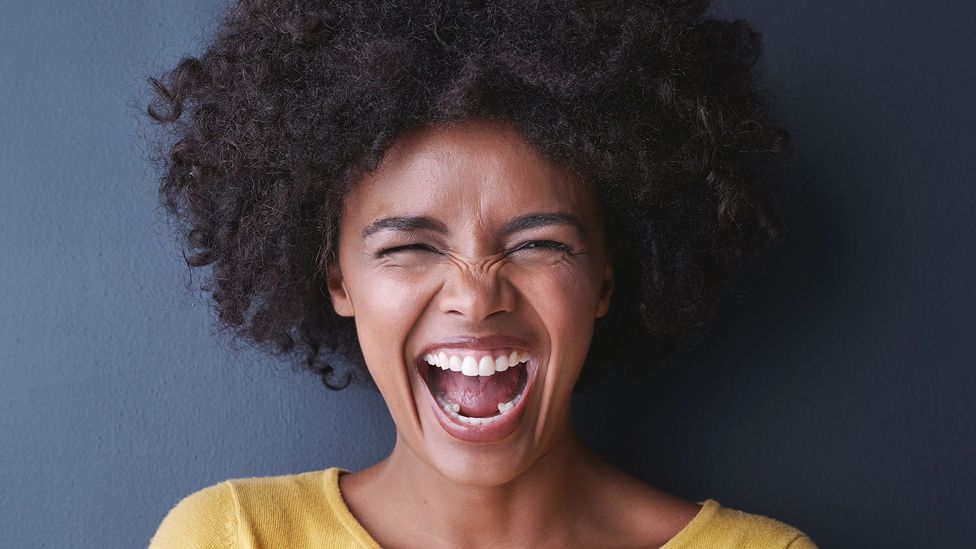
Shown a grin face, a small minority of Trobrianders said the person was happy (Credit: Getty Images)
That new enquiry includes contempo work past Crivelli. He has spent months immersed with the Trobrianders of Papua New Guinea also equally the Mwani of Mozambique. With both indigenous groups, he plant that study participants did non attribute emotions to faces in the same style Westerners practise.
It was non but the face up of fear, either. Shown a grinning face, only a small-scale percentage of Trobrianders declared that the face was happy. About half of those who were asked to describe it in their own words called it "laughing": a word that deals with action, not feeling. And several described the grin face as displaying the "magic of allure", a uniquely Trobriand-identified emotion that Crivelli describes equally "a raptured enchantment", or a feeling of being positively impacted by magic.
Gendron establish similar reactions while studying other indigenous groups – the Himba people in Namibia and the Hadza in Tanzania. Both groups, when asked to depict a facial expression in their own words, tended not to describe an expression as "happy" or "sad". Instead, they would focus on the actions of the people in the photographs (describing them as laughing or crying) or extrapolate reasons for the expressions ("Someone has died").
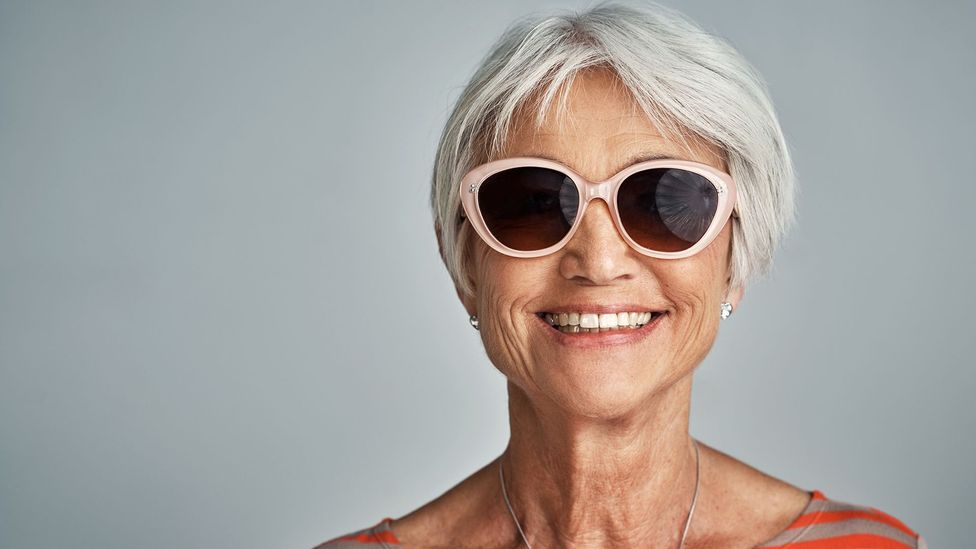
When others interpret our expressions, they might pinpoint an emotion nosotros're not actually feeling (Credit: Getty Images)
In other words, neither researcher found evidence that what is behind a facial expression – including whether an expression reflects an innermost emotion at all – is innately or universally understood.
Making matters more complicated, even when our facial expressions are interpreted by others equally exhibiting a sure feeling, they might pinpoint an emotion nosotros're not actually experiencing.
In a 2017 assay of about 50 studies, researchers found that only a minority of people's faces reflected their bodily feelings. Co-ordinate to co-author Rainer Reisenzein, there was one stiff exception: entertainment, which near always resulted in grin or laughter.
Reisenzein hesitates to interpret what those findings mean. "I'm one of these quondam-fashioned scientists who just practise research," he jokes. Notwithstanding, he does experience that in that location are proficient evolutionary reasons for u.s.a. not to reveal our inner states to other people: "It puts us at a disadvantage."
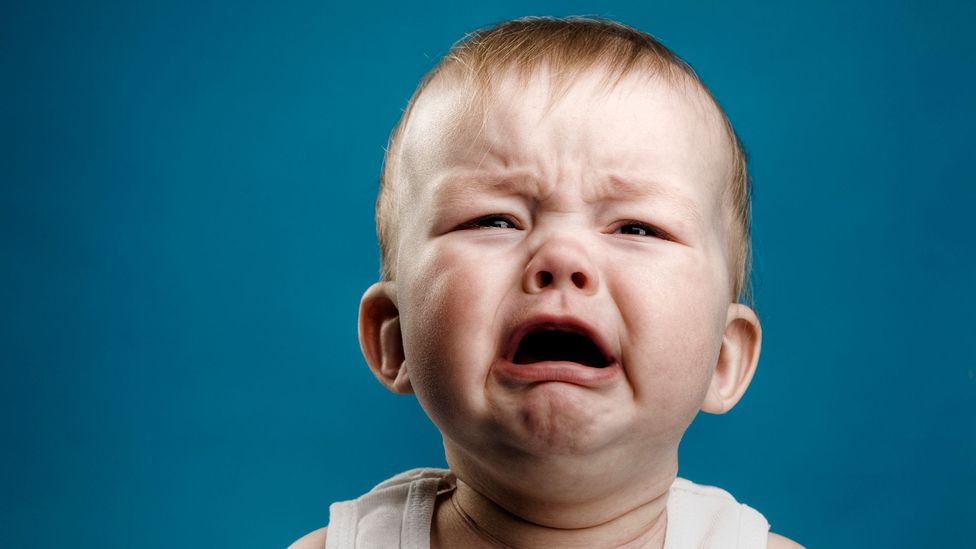
In terms of evolution, revealing our inner states to other people may put us at a disadvantage (Credit: Getty Images)
If our expressions don't really reflect our feelings, there are enormous consequences.
One is in the field of artificial intelligence (AI), specifically robotics. "A skillful number of people are preparation their artificial intelligence and their social robots using these archetype 'poster' faces," says Fridlund. Only if someone who frowns at a robot is signalling something other than unproblematic unhappiness, the AI may respond to them incorrectly.
"There'due south no way to predict how the robot should react when it sees a smiley confront or a pouty face up or a growling face up," Fridlund points out. "Y'all have to have some kind of noesis of the person's role with respect to yous, and also your history together, earlier knowing what that face means." Fridlund, who consults with companies that develop AI, feels that AI taught to draw from contextual cues will be more effective.
For most of us, though, the new research may have nigh of an effect on how nosotros interpret social interactions. It turns out that we might communicate better if we saw faces not as mirroring hidden emotions – but rather as actively trying to speak to u.s.a..
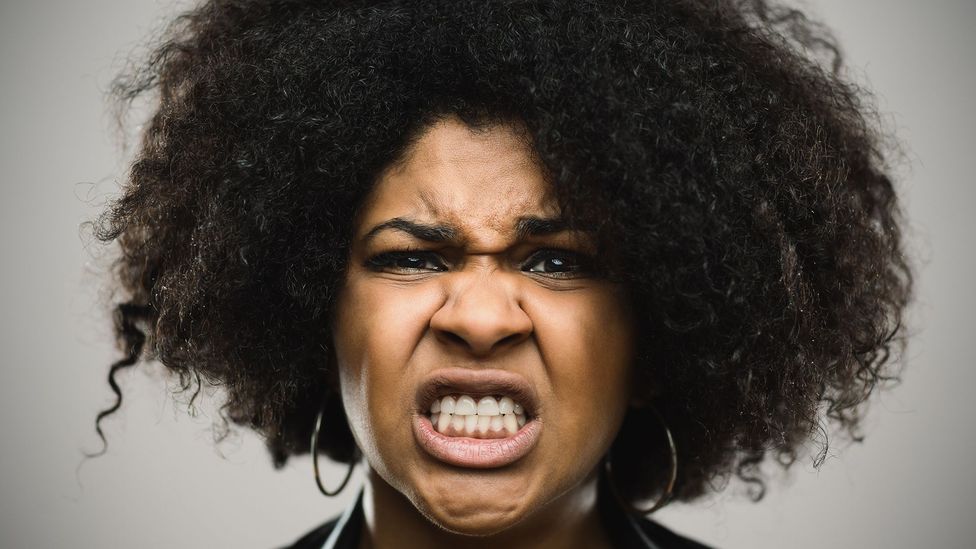
Some researchers fence that people should read faces not every bit expressions of innermost feelings, merely equally indications of how someone wants the interaction to go (Credit: Getty Images)
People should read faces "kind of like a road sign," says Fridlund. "It's like a switch on a railroad rail: do we go hither or practice nosotros go in that location in the conversation?" That scowl on your friend's face may not be actual anger; maybe she just wants you to concur with her betoken of view. Your son's pout doesn't necessarily reverberate sadness; he may just want you to empathise or to protect him from an uncomfortable state of affairs.
Have laughter, says Waller: "when you lot laugh and how you express joy within a social interaction is absolutely crucial." An inappropriately-timed express mirth might not reveal your inner joy at what'due south going on – merely it might show that you're non paying close attention to the conversation, or may even signal hostility.
For Crivelli, our faces may even be more calculating than that. He compares us to puppeteers, with our expressions like "invisible wires or ropes that yous are trying to apply to dispense the other."
And, of course, that other person is manipulating us right dorsum. We're social creatures, after all.
Join 800,000+ Futurity fans past liking the states on Facebook , or follow us on Twitter .
If yous liked this story, sign upward for the weekly bbc.com features newsletter , called "If You lot Simply Read 6 Things This Calendar week". A handpicked pick of stories from BBC Future, Culture, Capital, and Travel, delivered to your inbox every Fri.
Source: https://www.bbc.com/future/article/20180510-why-our-facial-expressions-dont-reflect-our-feelings
0 Response to "why do people ask me whats wrong or i look sad or to smiel"
Post a Comment